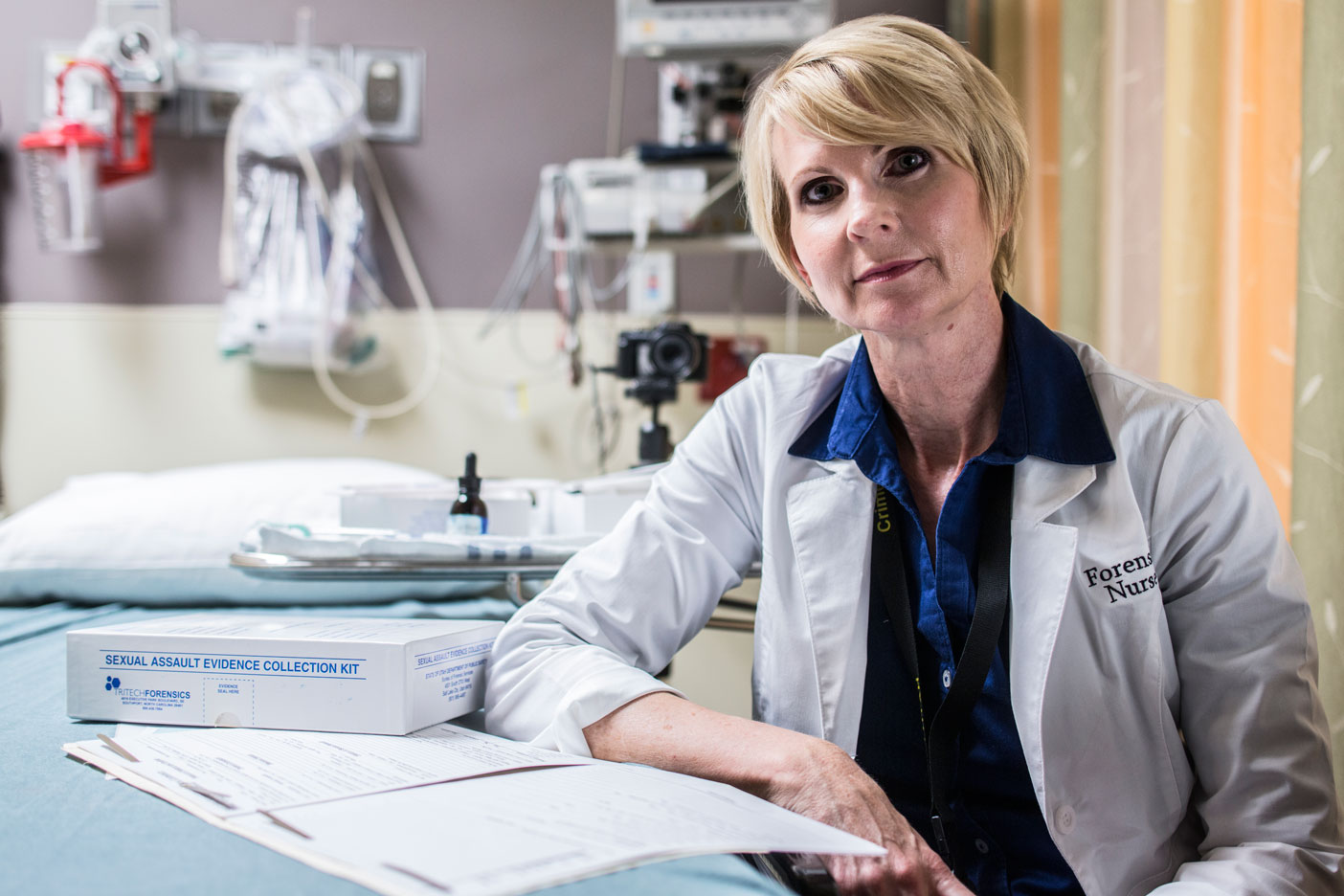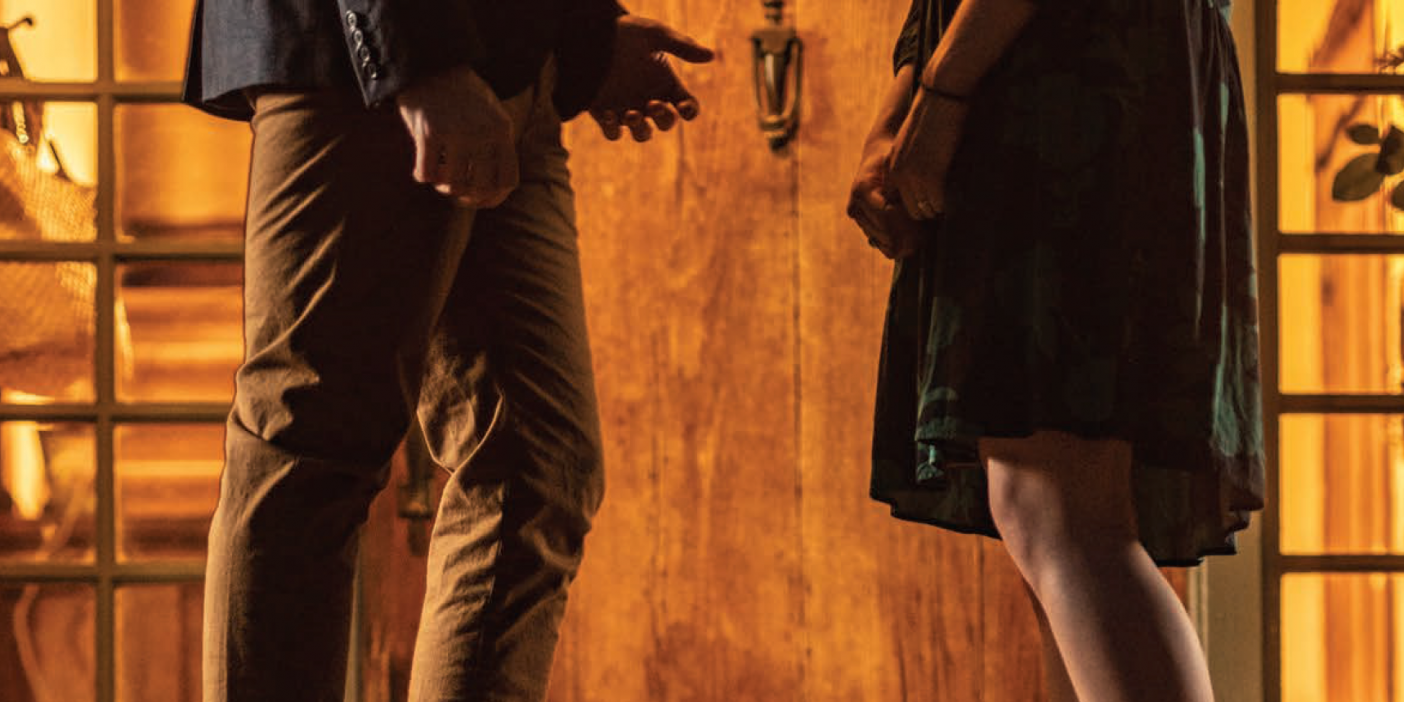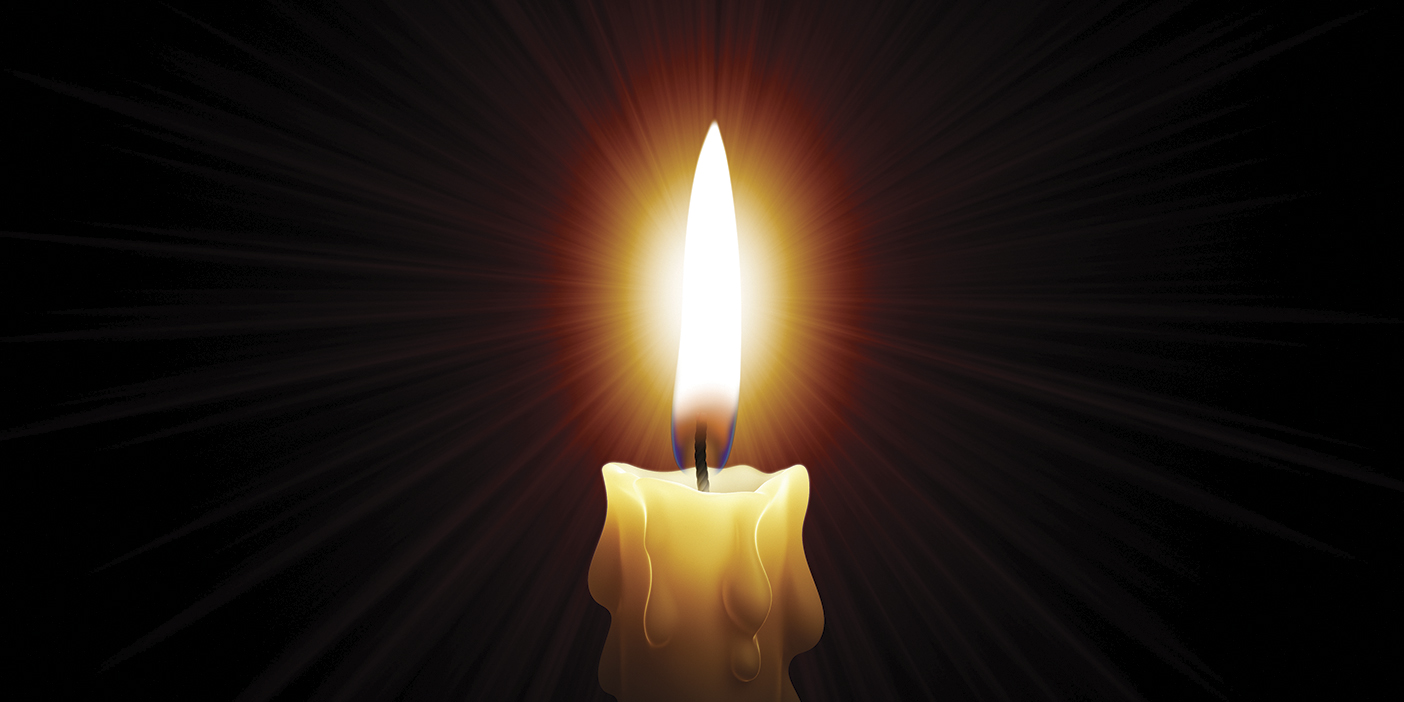The vast majority of rape kits go untested, their cases unprosecuted. Julie Valentine is fighting to bring them to light.
Julie L. Valentine walked into a hospital room to find a woman—a rape victim—sitting alone with downcast eyes. “She turned to look at me, and this whole side of her face was so badly beaten that she couldn’t even open her eye.” When Valentine, a sexual assault nurse examiner (SANE) and assistant teaching professor in BYU’s College of Nursing, introduced herself, the woman responded, “You need to know I brought this upon myself.”
Valentine pulled up a stool at the patient’s side and said, “I don’t even know your story yet, but the one thing I do know is you did not bring this upon yourself. No matter what choices you made, nobody brings this upon themself.”
It’s difficult work—the kind that leaves Valentine and other SANE nurses full of haunting images and heartbreaking memories. “It’s not one of those rainbow-and-unicorn jobs,” she says.
“I don’t even know your story yet, but the one thing I do know is you did not bring this upon yourself. No matter what choices you made, nobody brings this upon themself.” —Julie Valentine
After serving hundreds of patients, young and old, male and female, Valentine started worrying about what happened to them—and their attackers—after her examinations; she’d been subpoenaed only three times and testified in court just once. So while teaching at BYU, she began researching, and the statistics she found told a startling story: between 2003 and 2011, only 6 percent of reported sexual-assault cases were prosecuted in Salt Lake County. The national average falls between 9 and 15 percent, numbers advocates call reprehensible. Valentine has also begun research on the rape kits SANE workers collect as evidence in their examination of rape victims. Victims agree to the invasive examinations to prosecute their assaulters, but in preliminary research looking at data from 2010, Valentine found that only 29.2 percent of kits in Salt Lake County were tested by crime labs.

“We have an entire group of people that have no voice,” Valentine says. She hopes that her research can spark change. She’s met with law enforcement agencies and district-attorney’s offices around the state to discuss ways of improving their follow-up. One of the significant weaknesses occurs when law-enforcement officers interview victims. “Their training has been to interview suspects primarily,” Valentine says. One sign suspects may be lying is when they tell incomplete and out-of-sequence stories. As it turns out, rape victims’ stories often have similar characteristics because of the effects of trauma on memory. “Automatically, [officers will] say, ‘Well, the victim isn’t making sense to me. They’re lying.’ And they’ll close the case,” says Justin Boardman, a West Valley City detective who is working with Valentine to train officers on a trauma-informed victim interviewing protocol. “Her research has exposed a weakness in the chain from report to court,” he says. “We’ve started to try to help fix that.”
As difficult as her work may be, Valentine says the faces and stories of her patients keep her going: “My goal is through my research . . . to give these sexual-assault victims and rape victims a voice. We’ve got to study it to be able to find answers.”









